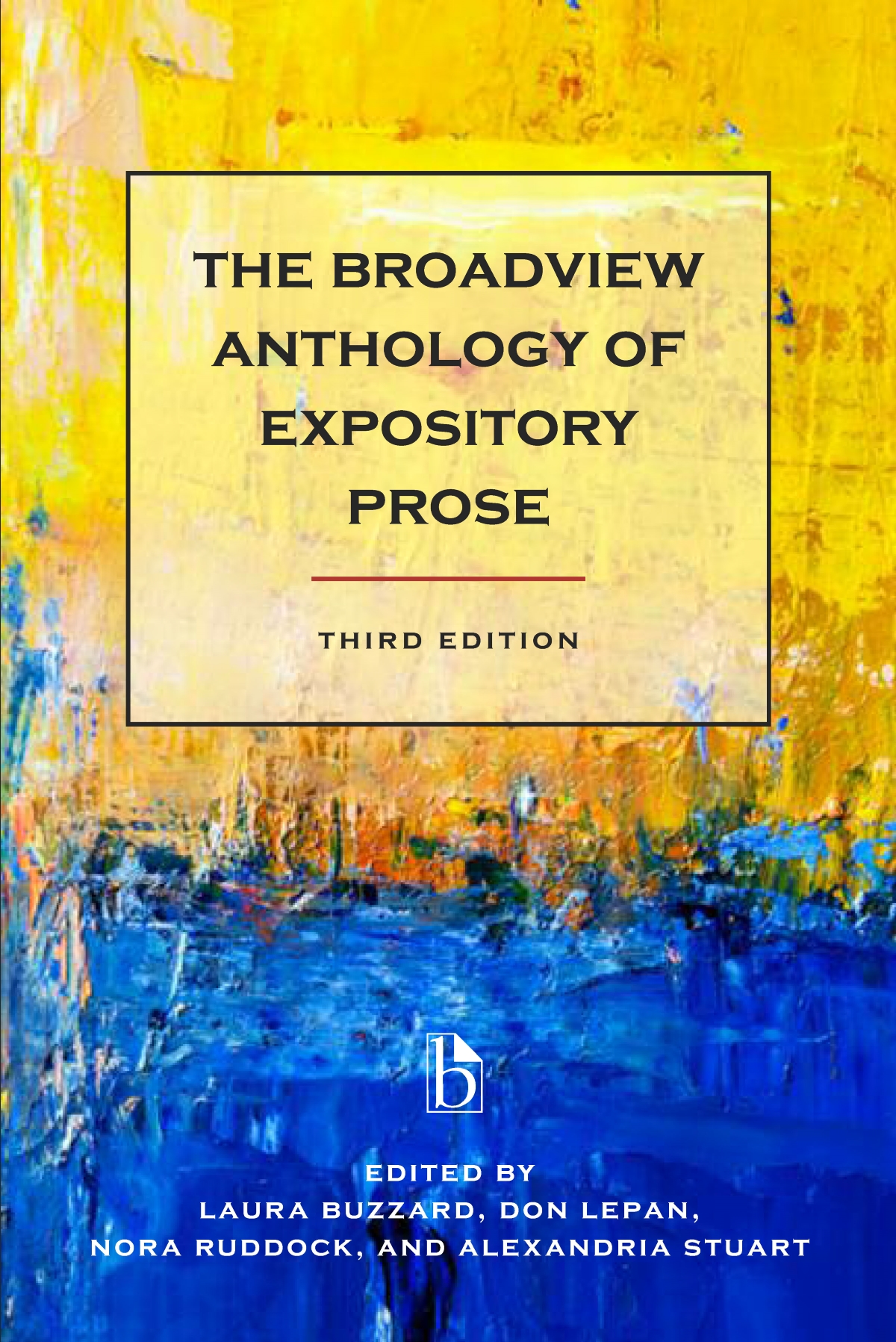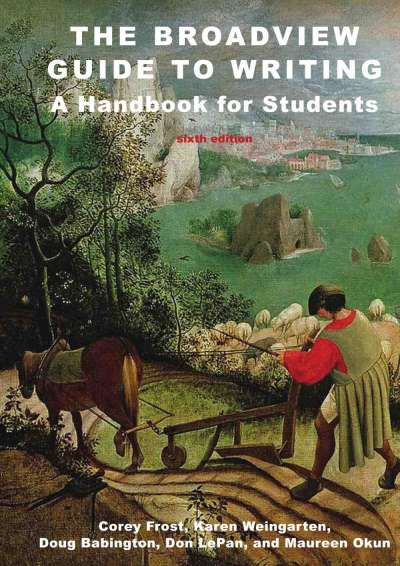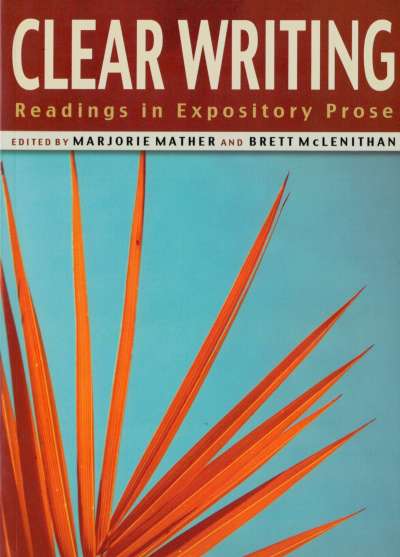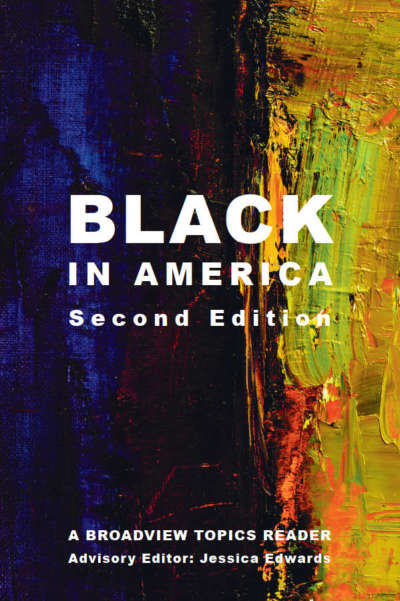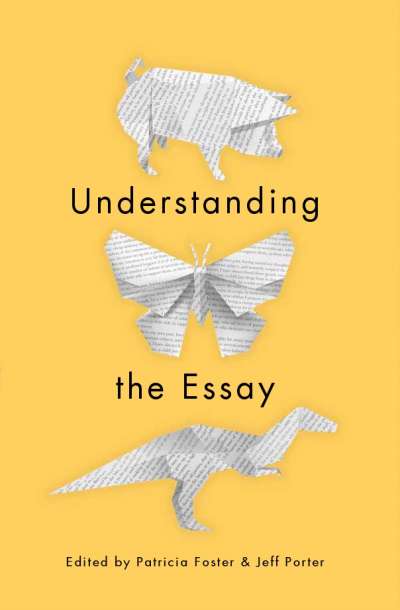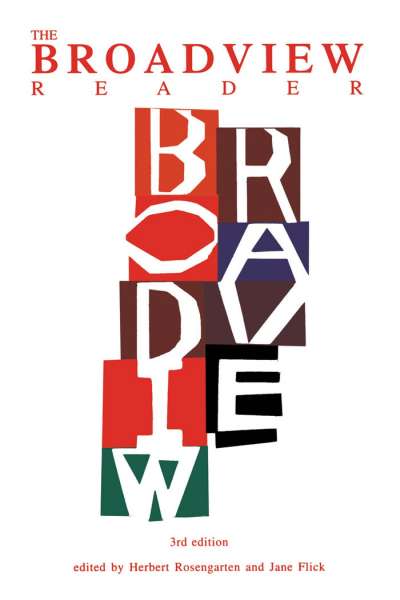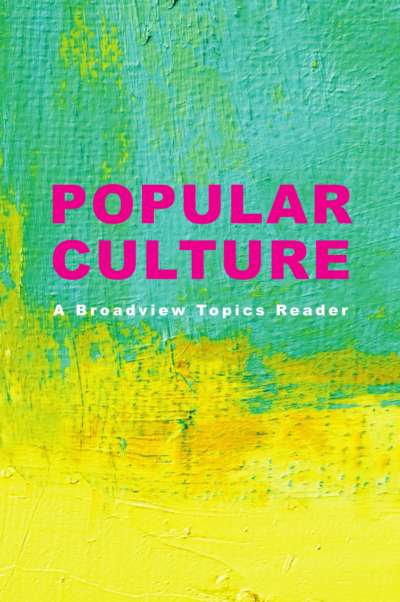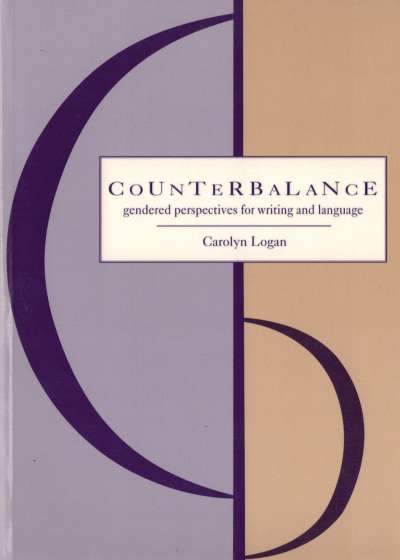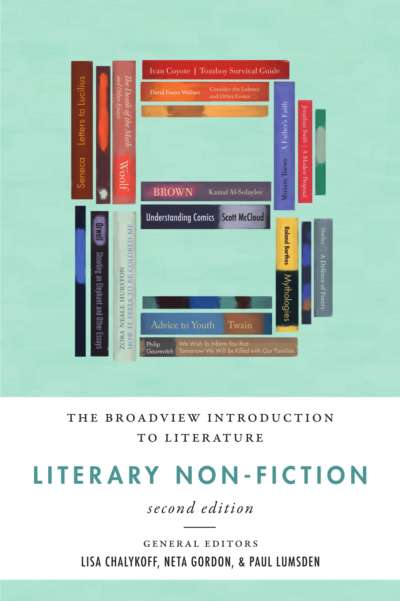The third edition of this anthology has been substantially revised and updated for a contemporary American audience; a selection of classic essays from earlier eras has been retained, but the emphasis is very much on twenty-first-century expository writing. Works of different lengths and levels of difficulty are represented, as are narrative, descriptive and persuasive essays—and, new to this edition, lyric essays. For the new edition there are also considerably more short pieces than ever before; a number of op-ed pieces are included, as are pieces from blogs and from online news sources. The representation of academic writing from several disciplines has been increased—and in some cases the anthology also includes news reports presenting the results of academic research to a general audience. Also new to this edition are essays from a wide range of the most celebrated essayists of the modern era—from James Baldwin, Susan Sontag, Joan Didion, and Annie Dillard to Eula Biss and Ta-Nehisi Coates.
The anthology remains broad in its thematic coverage, but certain themes receive special emphasis—notably, issues of race, class, and culture in twenty-first century America.
For the new edition the headnotes have been expanded, providing students with more information as to the context in which each piece was written. Questions and suggestions for discussion have been moved online to the instructor website.
Comments
Comments on previous editions:
“My students’ responses to the readings have sparked meaningful and productive conversations about culture, education, and our ways of viewing the world. To my delight, at the end of a typical meeting we are left with even more questions than when we began. This text fosters students’ growth as inquisitive, critical readers and opens the doorway to future academic work.” — Alixandra V. Krzemien, Canisius College
“What a wonderful and insightful collection of essays. My writing courses improved by leaps and bounds when I adopted the first edition. … [W]ith a diverse and engaging range of essays, The Broadview Anthology of Expository Prose challenges writers to read beyond the purview of their experience and knowledge so that their writing can consider and cross more horizons. This collection invites students into serious academic discourse via groundbreaking essays by prominent and influential voices from within and without academia; the second edition will prepare writers to understand how any topic or discipline cultivates networks of dialogue across popular, lyrical, scholarly, experimental, and theoretical styles. Don’t be surprised when students read more than the assigned material from The Broadview Anthology, as was the case when I adopted the first edition for my courses; the accessible organization and appeal of this book make it a useful resource for ongoing learning and research.” — Beth Staley, West Virginia University
“For the second edition, the editors of The Broadview Anthology of Expository Prose have managed to make significant improvements to what was already an above-average prose anthology. A particular strength of the new edition is the inclusion of paired articles (two articles on the same topic but directed toward different audiences), which provides students with the opportunity to explore the concepts of audience, voice, and purpose in writing.” — Lisa Salem-Wiseman, Humber College
“The Broadview Anthology of Expository Prose is one of the best essay anthologies I have seen. The remarkable diversity of the essays covers an impressive range of authors, styles, topics, and viewpoints. Included are essays from the humanities, the sciences, and the social sciences; scholarly essays, literary essays, and popular essays; traditional essays and contemporary ones; short essays and long ones; essays in a wide range of tones and of voices, by men and women from a wide range of backgrounds. An added bonus is the historical range of prose styles from the seventeenth to the twenty-first centuries. The quality of the essays also deserves high praise; again and again these readings demonstrate how the most common questions may provoke uncommon insights. Many selections have a sharp edge but they challenge a reader’s mindset without being confrontational. The topics make one take notice; the essays then lead the reader through the complexities of analysis. This anthology of significant, incisive, diverse essays should make a significant contribution to the recognition of the essay as a vitally important genre—and of essay writing as a vitally important literary and argumentative art.” — Paul D. Farkas, Metropolitan State College
PREFACE
CONTENTS BY SUBJECT
CONTENTS BY RHETORICAL CATEGORY AND MEDIUM
LUCRETIUS
LUCIUS ANNAEIUS SENECA
MICHEL DE MONTAIGNE
JOHN DONNE
MARGARET CAVENDISH
SAMUEL JOHNSON
LADY MARY WORTLEY MONTAGU
- from The Turkish Embassy Letters
- from Letter 30
- from Letter 43
JONATHAN SWIFT
MARY WOLLSTONECRAFT
- To M. Talleyrand-Périgord, Late Bishop of Autun
HARRIET MARTINEAU
- from A Retrospect of Western Travel
CHARLES LYELL
ELIZABETH CADY STANTON
- Seneca Falls Keynote Address
HENRY DAVID THOREAU
FREDERICK DOUGLASS
- from Fourth of July Oration
CHARLES DARWIN
- from On the Origin of Species by Means of Natural Selection
ELIZA M.
JORDAN ANDERSON
ABRAHAM LINCOLN
MARK TWAIN
- from Life on the Mississippi
OSCAR WILDE
JANE ADDAMS
W.E.B. DU BOIS
JOSÉ VASCONCELOS
- Books I Read Sitting and Books I Read Standing
ZORA NEALE HURSTON
- How It Feels to Be Colored Me
FRANKLIN D. ROOSEVELT
JANET FLANNER
VIRGINIA WOOLF
- from Three Guineas
- The Death of the Moth
GEORGE ORWELL
- Shooting an Elephant
- Politics and the English Language
WINSTON CHURCHILL
JAMES BALDWIN
JORGE LUIS BORGES
STANLEY MILGRAM
- from Behavioral Study of Obedience
IAN NICHOLSON
HANNAH ARENDT
RAYMOND WILLIAMS
MARTIN LUTHER KING, JR.
- Letter from Birmingham Jail
NELSON MANDELA
- from An Ideal for Which I am Prepared to Die
JOAN DIDION
- On Morality
- On Going Home
ROLAND BARTHES
JOHN BERGER
- Photographs of Agony
- Turner and the Barber’s Shop
SUSAN SONTAG
- from Freak Show
- from Regarding the Pain of Others
ANNIE DILLARD
- On Foot in Virginia’s Roanoke Valley
- from For the Time Being
ROSARIO FERRÉ
- On Destiny, Language, and Translation, or, Ophelia Adrift in the C. & O. Canal
MICHEL FOUCAULT
- from The History of Sexuality [The Perverse Implantation]
PETER SINGER
LESLIE MARMON SILKO
- Language and Literature from a Pueblo Indian Perspective
AUDRE LORDE
- Poetry is Not a Luxury
- The Uses of Anger: Women Responding to Racism
ADRIENNE RICH
- Claiming an Education
- from Compulsory Heterosexuality and Lesbian Existence
ALICE MUNRO
ELAINE SHOWALTER
- Representing Ophelia: Women, Madness, and the Responsibilities of Feminist Criticism
NGUGI WA THIONG’O
- from Decolonising the Mind
JUDY RUIZ
- Oranges and Sweet Sister Boy
ANATOLE BROYARD
- Intoxicated by My Illness
SALMAN RUSHDIE
SHERMAN ALEXIE
ANNE CARSON
- from Short Talks
- Introduction
- On Parmenides
- On Sleep Stones
- On Walking Backwards
- On the Total Collection
- On Sunday Dinner with Father
HENRY LOUIS GATES JR.
- from The Passing of Anatole Broyard
EMILY MARTIN
- The Egg and the Sperm: How Science Has Constructed a Romance Based on Stereotypical Male-Female Roles
JAMAICA KINCAID
- On Seeing England for the First Time
DAVID CARD AND ALAN B. KRUEGER
- from Minimum Wages and Employment: A Case Study of the Fast-Food Industry in New Jersey and Pennsylvania
URSULA FRANKLIN
- Silence and the Notion of the Commons
BELL HOOKS
- In Our Glory: Photography and Black Life
JEFFREY JEROME COHEN
- from Monster Culture (Seven Theses)
ALICE BECK KEHOE
- Transcribing Insima, a Blackfoot “Old Lady”
JUDITH RICH HARRIS
WILLIAM CRONON
RICHARD RODRIGUEZ
- from Crossing Borders [San Diego and Tijuana
- from Darling
THOMAS HURKA
- Philosophy, Morality, and The English Patient
PHILIP GOUREVITCH
- from We Wish to Inform You That Tomorrow We Will Be Killed with Our Families
JEANETTE ARMSTRONG
BARBARA EHRENREICH
- from Nickel and Dimed: On (Not) Getting by in America
MARGARET ATWOOD
MIRIAM TOEWS
MARK BEEMAN, ET AL.
DAVID FOSTER WALLACE
EULA BISS
BINYAVANGA WAINAINA
- How to Write about Africa
CYNTHIA OZICK
MALCOLM GLADWELL
- None of the Above: What I.Q. Doesn’t Tell You about Race
ADAM GOPNIK
- The Corrections: Abridgement, Enrichment, and the Nature of Art
DAVID SEDARIS
AI WEIWEI
LUIS W. ALVAREZ, WALTER ALVAREZ, FRANK ASARO, AND HELEN V. MICHEL
ELIZABETH KOLBERT
BARACK OBAMA
MARINA KEEGAN
JONATHAN SAFRAN FOER
RICHARD H. THALER AND CASS R SUNSTEIN
- from Nudge: Improving Decisions about Health, Wealth, and Happiness
MARILYN WANN
CHIMAMANDA NGOZI ADICHIE
NATALIA V. CZAP, HANS J. CZAP, GARY D. LYNNE, AND MARK E. BURBACH
- Empathy Nudging as a New Component of Conservation Programs
RYKA AOKI
- On Living Well and Coming Free
J WALLACE
- The Manly Art of Pregnancy
NEAL MCLEOD
ZADIE SMITH
MAGGIE NELSON
- from Bluets
- from The Art of Cruelty
AMY SCHALET
- The Sleepover Question
- from Not Under My Roof: Parents, Teens, and the Culture of Sex
JEANETTE WINTERSON
- from Why Be Happy When You Could Be Normal?
PICO IYER
STEPHEN GREENBLATT
ETHAN KROSS, ET AL
- from Facebook Use Predicts Declines in Subjective Well-Being in Young Adults
ANONYMOUS [THE ECONOMIST]
- Facebook Is Bad for You: Get a Life!
DAVID SHIELDS
- I Can’t Stop Thinking through What Other People Are Thinking
IRA BOADWAY
- NBA Refs Learned They Were Racist, and That Made Them Less Racist
ANN WROE
- Three Obituaries
- Chester Nez
- Nancy Reagan: Keeping Control
- Amjad Sabri: Hate and Love
ANTHONY S. TRAVIS
- The Accidental Discovery of Mauve
REBECCA SOLNIT
- Climate Change Is Violence
- The Mother of All Questions
GLORIA GALLOWAY
- Dr. Bjorn Lomborg Argues the Climate Change Fight Isn’t Worth the Cost
CLAUDIA RANKINE
- from Citizen: An American Lyric [On Serena Williams]
- The Condition of Black Life Is One of Mourning
NIKOLE HANNAH-JONES
- School Segregation: The Continuing Tragedy of Ferguson
TA-NEHISI COATES
NICHOLAS KRISTOF
- When Whites Just Don’t Get It
- When Whites Just Don’t Get It, Part 6
LAWRENCE G. PROULX
- A Group You Can Safely Attack
ROXANE GAY
WILLIAM H. FREY
- Census Shows Modest Declines in Black-white Segregation
ROBERT D. PUTNAM
- from Our Kids: The American Dream in Crisis
BILL SHORE
JILL LEPORE
- from Richer and Poorer: Accounting for Inequality
JAMES SUROWIECKI
LAUREN A. RIVERA
- Guess Who Doesn’t Fit in at Work
JONATHAN M. METZL AND KENNETH T. MACLEISH
- from Mental Illness, Mass Shootings, and the Politics of American Firearms
ATUL GAWANDE
NATHANAEL JOHNSON
- Is There a Moral Case for Meat?
MICHAEL POLLAN
- Why “Natural” Doesn’t Mean Anything Anymore
LAILA LALAMI
- My Life as a Muslim in the West’s “Gray Zone”
SARAH KURCHAK
- Autistic People Are Not Tragedies
EMILY NUSSBAUM
- The Price is Right: What Advertising Does to TV
NATHANIEL RICH
KATY WALDMAN
- from There Once Was a Girl: Against the False Narratives of Anorexia
JENNY ZHANG
MARGARET MACMILLAN
BARTON SWAIM
DAWN MARIE DOW
- The Deadly Challenges of Raising African American Boys: Navigating the Controlling Image of the “Thug”
MARILYNNE ROBINSON
ALEX BOZIKOVIC
- Chicago Architect Aims to Repair Relations between Police, Residents
TEJU COLE
MALIK JALAL
- I’m on the Kill List. This Is What It Feels Like to Be Hunted by Drones
JACOB BROGAN
- Don’t Anthropomorphize Inky the Octopus!
JOSÉ LUIS PARDO VEIRAS
JACQUELINE ROSE
MARY ROGAN
NAOMI KLEIN
NATHAN HELLER
TIMOTHY SNYDER
DAVID FRUM
YIYUN LI
MITCH LANDRIEU
CAMERON GLOVER
SUE DONALDSON AND WILL KYMLICKA
CASPAR A. HALLMANN, ET AL
SHANITA HUBBARD
DAMIAN CARRINGTON
WILLIAM BRENNAN
J. POORE AND T. NEMECEK
DAMIAN CARRINGTON
TERESE MARIE MAILHOT
JAMAL KHASHOGGI
BIOGRAPHICAL NOTES
ACKNOWLEDGEMENTS
INDEX
Laura Buzzard and Don LePan are co-authors of The Broadview Pocket Glossary of Literary Terms (2014) and of How to Be Good with Words (forthcoming, 2017); Nora Ruddock and Alexandria Stuart are, respectively, Developmental Editor and Assistant Editor, at Broadview Press.
The instructor site has additional questions and exercises as well as background material on certain essays.
The student companion site has additional readings, interactive writing exercises, and discussion questions. An access code to the website is included with all new copies. If you purchased a used copy or are missing your passcode for this site, please click here to purchase a code online.

